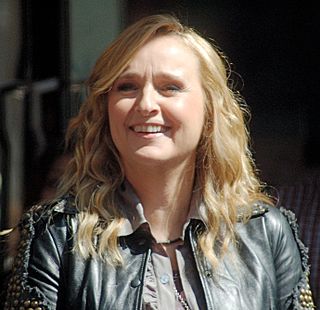A Quote by Madeleine L'Engle
When I have something to say that I think will be too difficult for adults, I write it in a book for children. Children are excited by new ideas; they have not yet closed the doors and windows of their imaginations. Provided the story is good... nothing is too difficult for children.
Related Quotes
I don't change the language for children books. I don't make the language simpler. I use words that they might have to look up in the dictionary. The books are shorter, but there's just not that much difference other than that to be honest. And the funny thing is, I have adult writer friends [to whom I would say], "Would you think of writing a children's book?" and they go, "No, God, I wouldn't know how." They're quite intimidated by the concept of it. And when I say to children's books writers, would they write an adult book, they say no because they think they're too good for it.
The new concept of the child as equal and the new integration of children into adult life has helped bring about a gradual but certain erosion of these boundaries that once separated the world of children from the word of adults, boundaries that allowed adults to treat children differently than they treated other adults because they understood that children are different.
Although adults have a role to play in teaching social skills to children, it is often best that they play it unobtrusively. In particular, adults must guard against embarrassing unskilled children by correcting them too publicly and against labeling children as shy in ways that may lead the children to see themselves in just that way.
If we are always reading aloud something that is more difficult than children can read themselves then when they come to that book later, or books like that, they will be able to read them - which is why even a fifth grade teacher, even a tenth grade teacher, should still be reading to children aloud. There is always something that is too intractable for kids to read on their own.
People ask me, 'Is being a parent the be-all, end-all?' And I say, 'Oh, it definitely is up to the person, and it is difficult, it can be very difficult, and it can be extremely healing.' That's what I have found, that the children are mirrors. Everyone is a mirror, but children especially because they're day and night and all day long.


































